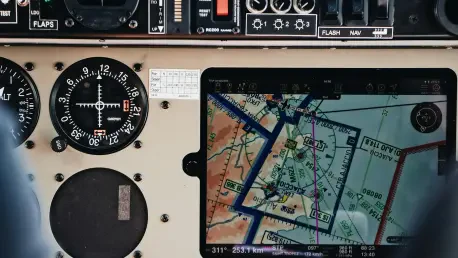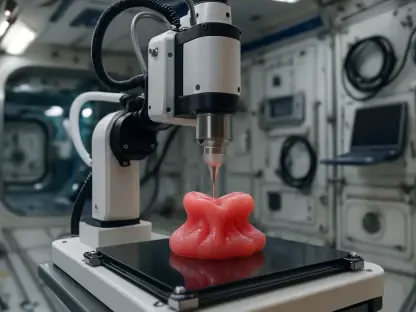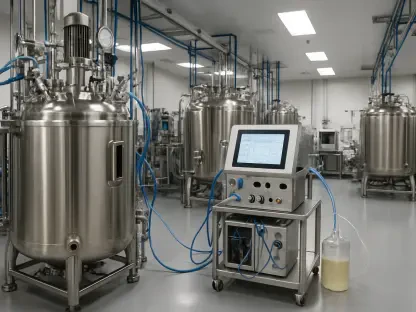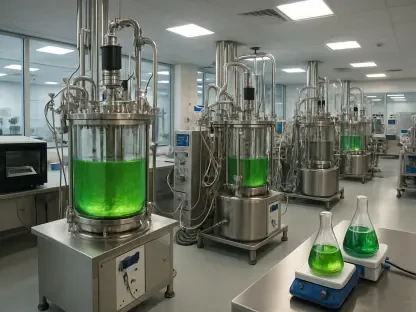In a world where aviation technology is advancing at an unprecedented pace, a groundbreaking partnership has emerged to redefine the standards of aircraft braking systems, promising to revolutionize the industry. General Atomics Aeronautical Systems, Inc. (GA-ASI), a leader in unmanned aircraft systems, has joined forces with EPI, an entity under EDGE Group specializing in precision engineering within the UAE’s aerospace and defense sectors. This collaboration, announced at a prominent airshow in Dubai, focuses on the joint manufacturing and repair of Electronic Brake Control Units (eBCUs). Facilitated by the Tawazun Council for Defence Enablement under the UAE Tawazun Economic Programme, this initiative promises to bring cutting-edge solutions to both civilian and military aviation. By replacing traditional hydraulic braking systems with innovative electronic alternatives, this partnership is poised to enhance performance, sustainability, and efficiency in the aerospace industry, marking a significant step forward for technological innovation on a global scale.
Pioneering a New Era in Aviation Technology
Advancing Electronic Braking Systems
The shift from hydraulic to electronic braking systems represents a monumental leap in aviation technology, and this collaboration between GA-ASI and EPI is at the forefront of that transformation. Electronic Brake Control Units (eBCUs) offer a compact design that significantly reduces the weight and space requirements compared to traditional systems. This innovation not only improves aircraft efficiency but also delivers superior braking performance under diverse conditions. Additionally, the environmental benefits are substantial, as electronic systems minimize fluid usage and associated leakage risks, aligning with global sustainability goals in aerospace. GA-ASI’s leadership has highlighted the potential for this technology to become the new standard for modern aircraft, emphasizing its reduced maintenance needs as a key advantage for operators. As the aviation sector increasingly prioritizes greener and more efficient solutions, this development stands as a testament to the power of strategic partnerships in driving meaningful progress across the industry.
Impact on Aircraft Design and Operations
Beyond the immediate benefits of performance and sustainability, the adoption of eBCUs is set to influence broader aspects of aircraft design and operational strategies. With a lighter and more streamlined braking system, engineers can explore new configurations for aircraft, potentially optimizing fuel efficiency and payload capacity. For operators, the reduced maintenance demands translate into lower operational costs and less downtime, which is critical in an industry where efficiency often dictates profitability. Furthermore, the precision of electronic control allows for finer adjustments during braking, enhancing safety across various flight scenarios, from routine landings to emergency situations. This partnership’s focus on integrating such advanced technology into both civilian and defense applications underscores a holistic approach to modernizing aviation. By addressing multiple facets of aircraft performance, this initiative promises to reshape how the industry approaches innovation in the coming years, setting a benchmark for others to follow.
Economic and Strategic Implications for the UAE
Boosting Industrial Growth and Expertise
The collaboration between GA-ASI and EPI, supported by the Tawazun Economic Programme, is not just a technological milestone but also a catalyst for economic growth in the UAE. By establishing local manufacturing and repair capabilities for eBCUs, this initiative fosters industrial capacity and nurtures a skilled workforce in precision engineering. The Tawazun Council’s role in facilitating this partnership highlights a deliberate strategy to position the UAE as a regional hub for high-value manufacturing excellence. This move aligns with national objectives of economic diversification, reducing dependence on traditional sectors while building resilience through innovation. The emphasis on knowledge transfer ensures that local expertise develops alongside technological advancements, creating a sustainable ecosystem for aerospace and defense industries. Such efforts are poised to yield long-term benefits, enhancing the UAE’s competitiveness in a global market increasingly driven by advanced manufacturing and specialized technical skills.
Strengthening Global Aerospace Standing
Equally significant is how this partnership elevates the UAE’s standing in the global aerospace and defense landscape. The focus on vertical integration and increased In-Country Value through local production of advanced components like eBCUs demonstrates a commitment to self-reliance and innovation. EPI’s leadership has emphasized the importance of comprehensive aftermarket support, ensuring that the UAE becomes a key player in the lifecycle management of next-generation aviation technologies. This strategic alignment with global trends—such as the push for greener systems and enhanced operational efficiency—positions the UAE as a forward-thinking contributor to the industry. Moreover, the collaboration strengthens international ties, as partnerships with leading entities like GA-ASI bring credibility and attract further investment. By blending defense priorities with industrial growth, this initiative reflects a nuanced approach to achieving technological independence while reinforcing the UAE’s role as a pivotal player in shaping the future of aviation technology on a worldwide stage.
Reflecting on a Milestone Achievement
Laying the Foundation for Future Innovations
Looking back, the partnership between GA-ASI and EPI, enabled by the Tawazun Council, stood as a defining moment in the evolution of aviation braking technology. The commitment to developing and producing Electronic Brake Control Units in the UAE marked a bold stride toward redefining industry standards, blending enhanced performance with environmental stewardship. This collaboration not only showcased the potential of electronic systems to outperform traditional hydraulic brakes but also highlighted the power of strategic alliances in overcoming complex challenges. As the initiative gained traction, it became evident that the groundwork laid during this period would inspire further innovations, encouraging other nations and companies to explore similar advancements. Moving forward, stakeholders can build on this foundation by investing in research to refine eBCU technology, ensuring it adapts to emerging needs in both civilian and military aviation, thereby sustaining momentum for continuous improvement.
Charting the Path Ahead for Global Impact
Reflecting on the strides made, this partnership also carved a clear path for amplifying global impact in the aerospace sector. The focus on local manufacturing in the UAE under the Tawazun Economic Programme demonstrated a model for economic diversification that others could emulate, balancing industrial growth with technological progress. The success of integrating eBCUs into aircraft systems underscored the importance of scalability and adaptability in technology deployment. For the future, industry leaders should consider fostering similar collaborations that prioritize sustainability and efficiency, while governments might explore policies that incentivize local innovation in high-tech fields. Additionally, expanding training programs to cultivate expertise in advanced manufacturing could ensure that the benefits of such initiatives endure. This historic effort illuminated the potential for regional hubs to influence global standards, urging a collective push toward a more innovative and interconnected aviation future.









